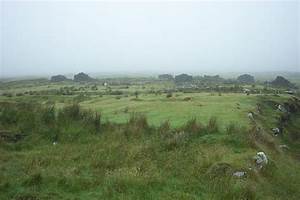Slievemore: The Abandoned Village

You park your car on a low slope
under the graveyard wall. Always
there is a mound of fresh-turned earth, flowers
in pottery vases. There is light, from the sea and the wide
western sky, the Atlantic’s
soft-shoe nonchalance, whistle
of kestrels from the lifting mists, furze-scents, ferns, shiverings –
till suddenly you are aware
you have come from an inland drift of dailiness to this shock
of island, the hugeness of its beauty
dismaying you again to consciousness. Here
is the wind-swept, ravenous
mountainside of grief; this is the long tilted valley where famine
came like an old and infamous flood
from the afflicting hand of God. Beyond all
understanding. Inarticulate. And pleading.
Deserted. Of all but the wall-stones and grasses,
humped field-rocks and lazy-beds; what was commerce and family
become passive and inert, space
for the study of the metaphysics of humanness. You climb
grudgingly, aware of the gnawing hungers,
how the light leans affably, the way an urchin once might have watched
from a doorway;
you are no more than a dust-mote on the mountainside,
allowing God his spaces; you are
watercress and sorrel, one with the praying of villagers,
one with their silence, your hands
clenched in overcoat pockets, standing between one world
and another. It has been easier to kneel
among the artefacts in the island graveyard, this harnessing of craft
to contain our griefs;
here, among these wind-swept, ravenous acres
where we abandon our acceptably deceased to the mountain earth.
In grace. In trustfulness.
This, too, the afflicting hand of God. Beyond all
understanding. Inarticulate. Though in praise.
John F. Deane
from “A Little Book of Hours” Carcanet 2008







No Comments
Add a comment about this page